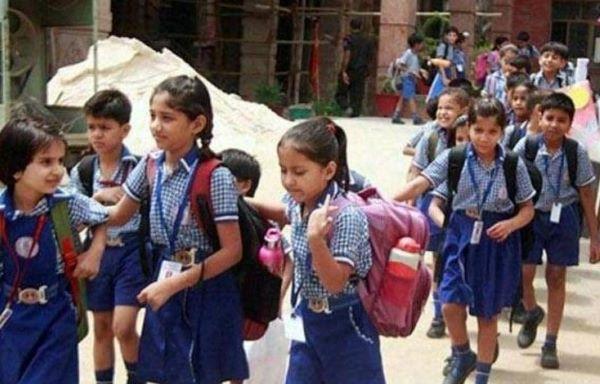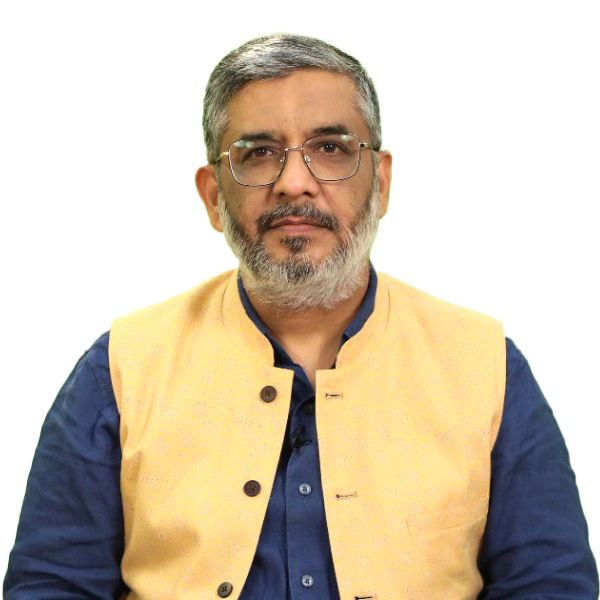

With emphasis on the need for love, care and quality education for the children of my nation, I would like to greet them at the occasion of Children’s Day Celebration 2024. Today, as we come together to celebrate Children’s Day, it’s a proud moment for me in the role of a teacher educator to extend my warm affection and endearment towards every child of the nation who is close to my heart.
I see the day as a reminder not only of our love and care for children but of the importance of providing them with the right tools and environment to shine exceptionally. This day serves as a reminder of why we dedicate ourselves to the education of young minds—the architects of our future. Every child of the nation is the fountainhead of energy, there is a need to channelize them in the right direction for the right purpose.One of the most rewarding parts of being an educator is witnessing the boundless curiosity and imagination that children bring into a classroom. Children approach learning with fresh perspectives and often surprise us with their innovative solutions. They challenge conventions and question the world around them, prompting us to stay curious and think creatively.Children have an innate potential that needs encouragement, not just in academics but also in arts, sports, social skills, and creative pursuits. We need to remind ourselves that every child learns differently, and our education systems must be adaptive and inclusive to cater to this diversity.
The NEP 2020 is a promise to ensure that every child, regardless of background, can experience a nurturing, stimulating, and supportive early childhood education. They emphasize skill development, critical thinking, and holistic growth over exam-centric learning. With a growing understanding of early childhood’s importance, educators across India have emphasized on Early Childhood Care and Education (ECCE), which is a foundation stage learning out of four stages of learning as envisioned in NEP 2020.
The NEP 2020 has taken the first step by incorporating ECCE into the formal school system, in a comprehensive manner, addressing a major segment of India’s population. This initiative aims to bridge the gap in early childhood education. The policy has also proposed training of Anganwadi workers and preschool teachers to provide age-appropriate, play-based, and activity-based learning that meets the developmental needs of young children for holistic development.
ECCE provides a nurturing environment that supports children’s development in their early years, which is the most formative phase of their lives, at this stage, every interaction, story, and experience shapes their understanding of the world. To support this vision, the policy emphasizes that quality ECCE should be accessible to all, thereby helping to reduce early educational inequities and promoting an inclusive foundation for all children. ECCE framework stresses a child-centred approach, where learning is play-based and experiential for children encouraged to explore, play, and learn at their own pace. Studies show that 85% of brain development occurs by age 6, making it a critical period to support cognitive, emotional, and social growth to unlock the vast potential during early years.
The stresses of contemporary life, exacerbated by the speed at which technology is developing, can perhaps be too much to handle. To promote and build resilience, we must train our future teachers to spot the symptoms of stress, anxiety, or low self-esteem in their children. A child’s socioemotional development depends on activities that foster empathy, kindness, and self-awareness, such as storytelling sessions, art therapy, and group discussions.
While honouring the happiness and purity of youngsters on this Children’s Day, let’s reaffirm our dedication to providing each child with high-quality early childhood education and care. As teacher educators, we have a shared obligation to cultivate these young brains for a better future by planting the seeds of a more resilient, capable, and lively generation.
Together, let’s improve the globe for the coming generations. Let’s work together to safeguard and value children.
(The author is Chairperson, National Institute of open schooling and National Council for Teacher Education)



